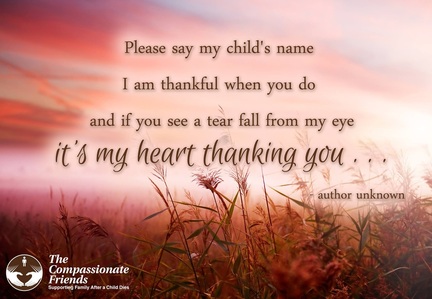Yesterday's post was about things a grieving parent could do to cope with the emotional challenges of the holiday season. Today's post is for those of you who know a bereaved parent. This post is about ways you can help them. It does not matter how long ago their child died. Parents miss their child every bit as much today as they did the day their child died. Unfortunately, those around them often think after the first year, they no longer need the TLC, support, and care they received then.
1 Comment
|
Archives
October 2015
Categories |
Proudly powered by Weebly


 RSS Feed
RSS Feed